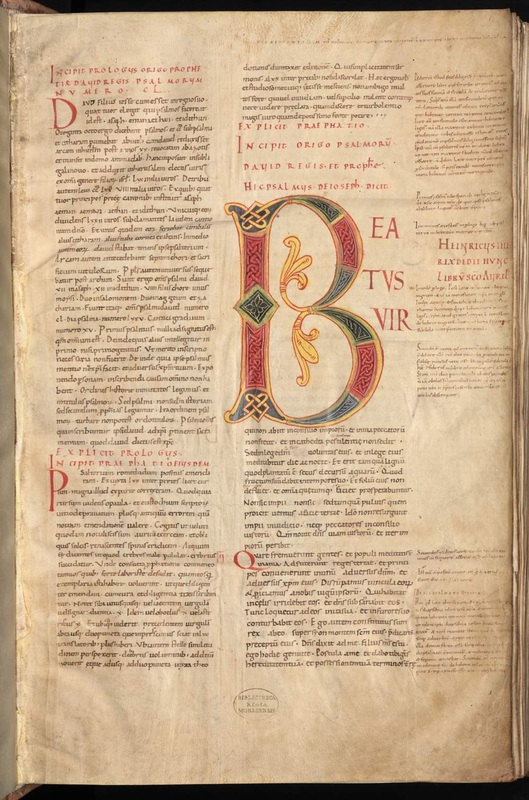 Jerome’s prologue followed by the Psalter of Volume II, BSB Clm 13001, Bavarian State Library, Munich, Germany. Jerome’s prologue followed by the Psalter of Volume II, BSB Clm 13001, Bavarian State Library, Munich, Germany. It was the best of times. And, it was the worst of times. Great, lavish and monumental Bibles were being produced across Europe in the Eleventh Century. And, a 50 year civil war took place over the tug of war of political and ecclesiastical power. At issue was a simple question: Who determines who becomes a bishop or a pope? The state? Or the church? While this might sound like a question buried in the obscurities of medieval history, the fundamental issues that come out of the answer to that question resonate to this day. In the year 1075, King Henry IV, king of Germany, gave a Great Bible to the Benedictine monks at the Hirsau Abbey. The public gesture was one of good will and an act of piety that demonstrated the alleged subservience of the state to the church in moral and spiritual matters. King Henry IV went on to become Emperor Henry IV of the Holy Roman Empire and King of the Romans. In spite of the act of good will, the Investiture Controversy began as a power struggle between Pope Gregory VII (1072–1085) and this same Henry IV, Holy Roman Emperor (1056–1106). In 1083, Emperor Henry IV besieged Pope Gregory VII in Rome. The pope called on the Norman duke of Apulia, Calabria and Sicily, Guiscard, who at the time is warring against the Byzantine Emperor Alexius I Comnenus. Guiscard with 36,000 men escort the pope to safety to the Lateran Palace. The people of Rome rioted in protest to the Norman presence of paid mercanaries. The Normans then sacked and burned the city over a three day period. Like the past, the present is no different. It is the best of times. And, it is the worst of times. The person - or political party if that was possible, who determines the leadership of the church dictates the direction of the church. Consider the issues raised by Wikileaks. See this Great Bible at Bavarian State Library, BSB Clm 13001.
1 Comment
|
AuthorPeter Hebert Archives
March 2021
Categories |
 RSS Feed
RSS Feed
